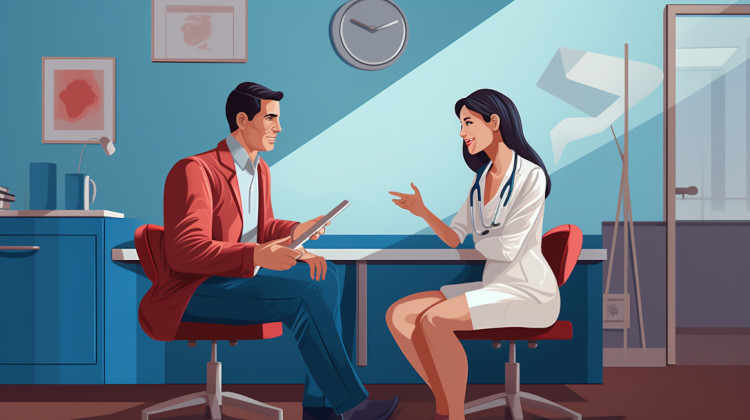
Movement disorders are classifications for neurological conditions that affect the body’s movement. They can increase or decrease movements, whether voluntary or involuntary.
There are many different diagnoses that can fit within the movement disorder category. Some common movement disorders include ataxia, essential tremor, spasticity, Parkinson’s Disease, Huntington’s Disease, Tardive Dyskinesia, and Tourette Syndrome. An individual's specific movement disorder will determine their symptoms and prognosis.
If you are concerned you may have a movement disorder, reach out to your doctor. Early intervention may reduce symptoms and provide support.
What Causes Movement Disorders?
Because there are many different movement disorders, a wide variety of outside factors may cause them. Possible causes include:
- Toxins
- Genetics
- Neurological damage
- Certain medicines
- Infection
Movement Disorder Signs & Symptoms
Movement disorders can manifest in a variety of degrees. The symptoms an individual has will depend on the specific diagnosed disorder.
Movement disorders may have one or more of the following symptoms:
- Uncontrolled tremors, spasms, twitches, or shaking.
- Lack of balance and coordination.
- Difficulty swallowing, writing, or speaking.
- Difficulty walking or changes in gait.
- Stiff limbs.
Can Cannabis Help Alleviate Symptoms of Movement Disorders?

It can be difficult to find symptom management options for movement disorders, and it can be an isolating disorder to live with without the proper treatment.
Research on cannabis and different movement disorders such as Tourettes, Parkinson’s, and Huntington’s point to the potential for cannabinoids to help slow progression and relieve symptoms. Researchers have found that cannabinoids may improve quality of life, but the results are mixed. Cannabis use for the treatment of Tourettes may indicate the most potential, with just 10mg of THC per day reducing tics when compared to the placebo in a small trial of 24 patients.
Other research points to cannabinoids' potential for the treatment of other symptoms often associated with movement disorders, such as pain. One review from 2022 found that in a small sample size of patients with Parkinson’s, pain thresholds were increased with cannabis use.
Cannabinoids like THC have been demonstrated in some research studies to potentially be beneficial for reducing tremors associated with movement disorders such as Parkinson's. However, there are conflicting results for movement disorders like Huntington’s, multiple sclerosis, or ataxia.
Cannabinoids may exert their effects on movement disorders through the CB1 and CB2 receptors in the basal ganglia and immune system. This pathway may also be how cannabis provides its neuroprotective properties.1 While cannabis use in the studies was well-tolerated, and results were promising, more research is needed before making conclusive statements about the use of cannabis for movement disorders.
Legality and Doctor’s Recommendation
To determine if your state considers movement disorders to be a qualifying condition for medical marijuana, check out our Laws & Regulations section for the medical cannabis rules for your state.
If you find that your state recognizes movement disorders or their symptoms as a qualifying medical condition, you can seek a doctor’s recommendation to get your medical cannabis card in your state.
How NuggMD Can Help

NuggMD is the nation's leading medical marijuana technology platform, serving patients in more than half the states in the U.S. We’ve connected over 2,000,000 patients with their new medical marijuana doctors face-to-face via our state-of-the-art telemedicine platform.
We believe that every human being has the right to explore the benefits of medical cannabis and are fully committed to helping each patient explore all of their options in their journey to wellness. For further information on whether you qualify for medical cannabis, select your state.
References
- Lim K, See YM, Lee J. A Systematic Review of the Effectiveness of Medical Cannabis for Psychiatric, Movement and Neurodegenerative Disorders. Clin Psychopharmacol Neurosci. 2017;15(4):301-312. doi:10.9758/cpn.2017.15.4.301
- Kluger BM, Huang AP, Miyasaki JM. Cannabinoids in movement disorders. Parkinsonism & Related Disorders. 2022;102:124-130. doi:https://doi.org/10.1016/j.parkreldis.2022.08.014
- Arjmand S, Vaziri Z, Behzadi M, Abbassian H, Stephens GJ, Shabani M. Cannabinoids and Tremor Induced by Motor-related Disorders: Friend or Foe?. Neurotherapeutics. 2015;12(4):778-787. doi:10.1007/s13311-015-0367-5
The information in this article and any included images or charts are for educational purposes only. This information is neither a substitute for, nor does it replace, professional legal advice or medical advice, diagnosis, or treatment. If you have any concerns or questions about laws, regulations, or your health, you should always consult with an attorney, physician or other licensed professional.

